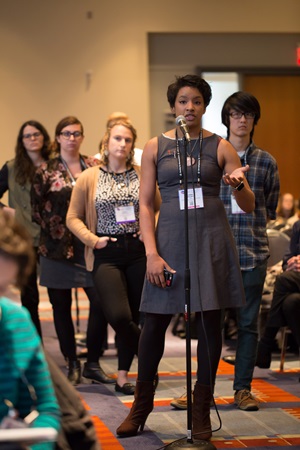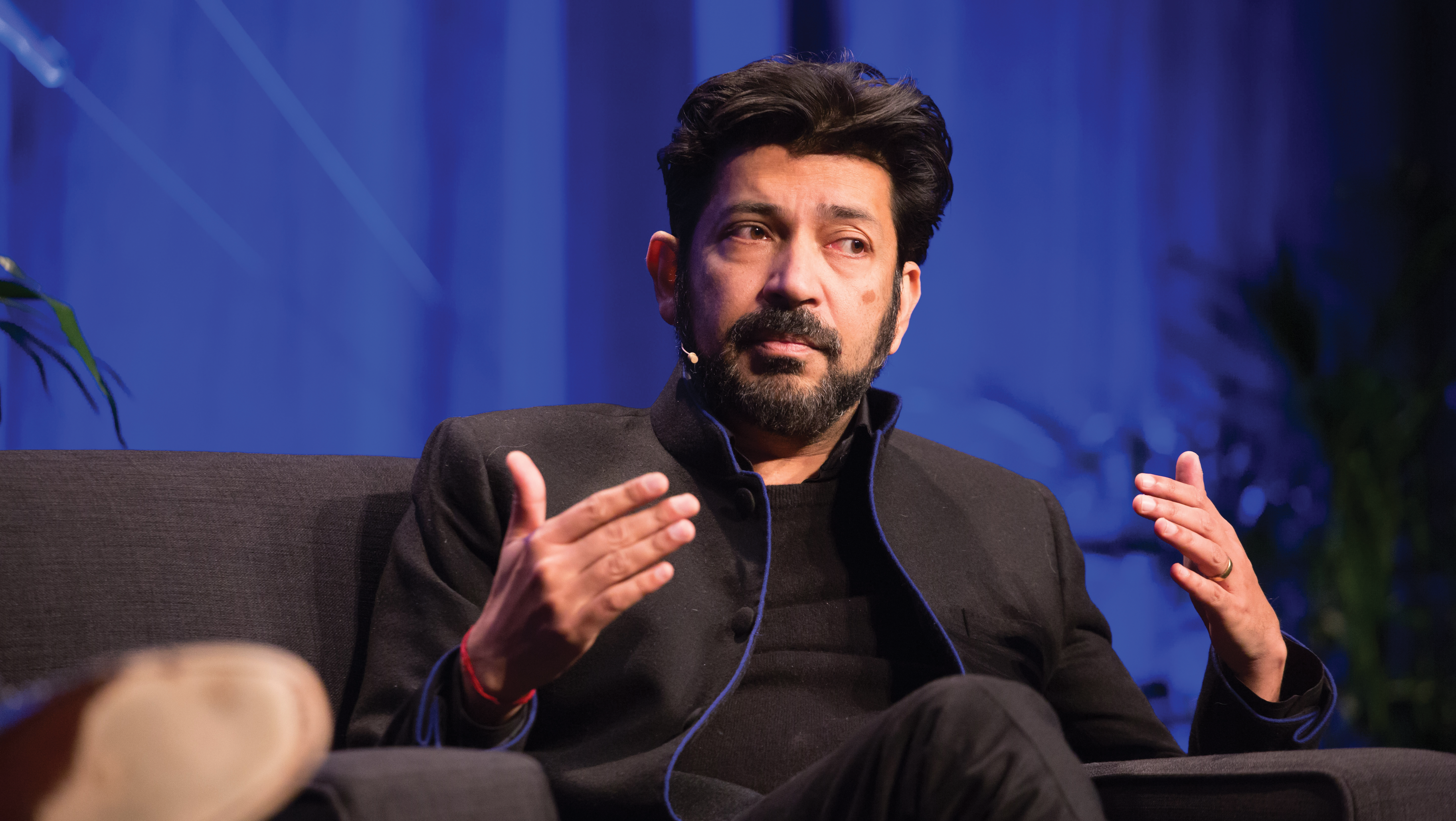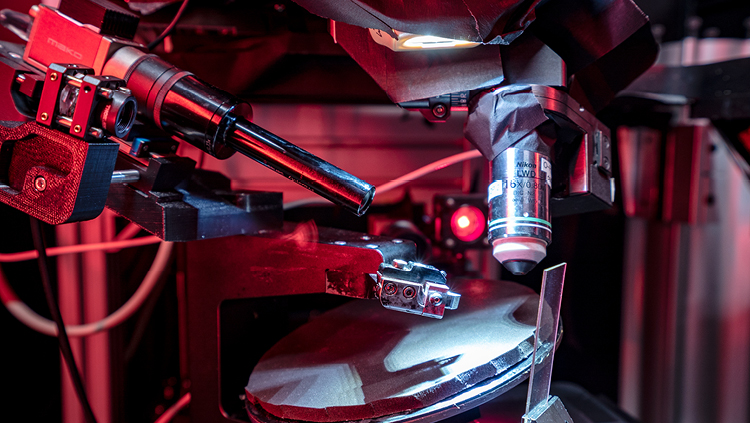
Supporting the Neuroscience Community: Career Development in an Interconnected World
SfN members belong to a global community of neuroscientists who embrace a philosophy of lifelong learning. To support continuous scientific training and professional development, SfN offers members and the field a variety of resources and high-quality programming on emerging topics and techniques to enrich their research and careers, regardless of career stage.
ACCESSIBLE, YEAR-ROUND TRAINING
This year SfN reaffirmed its commitment to supporting the scientific training needs of its community, developing a variety of resources on topics including new approaches to scientific rigor, as well as emerging tools and technologies.
“How science is done in different countries is slightly different, and it’s really interesting to work with people who have different constraints in their funding, or different ways for how they undertake research.” — Clare Howarth, Vice Chancellor’s Advanced Fellow University of Sheffield, U.K.
SfN continued its commitment to promoting rigor and transparency in neuroscience research and communication. In alignment with this initiative, SfN hosted a virtual conference in April 2018 titled “Enhancing Rigor and Transparency in Neuroscience.” This virtual conference was funded by the National Institute on Drug Abuse and shared information on evolving best practices for rigorous data collection, management, and analysis; changes in publishing to enhance transparency; and recognizing and addressing perverse incentives in science. This virtual conference, available open access and on demand, adds to SfN’s growing collection of training resources to promote rigor in research practices that the Society has developed over the past three years in collaboration with neuroscientists from around the world and with funding support from NIH.
This virtual conference was the first of two the Society hosted in FY 2018 focused on scientific training. The second, titled “Advances in Single Cell Genomics to Study Brain Cell Types” and hosted in June 2018, covered technical and conceptual advances in single cell analyses in the brain that are providing scientists with new approaches to better understand brain development, evolution, and disorders.
On August 1, SfN also piloted an optogenetics training series, comprising eight complementary digital modules available on Neuronline as well as a virtual conference. The eight modules, available to members at their convenience, include on demand webinars, videos, and other written content. The virtual conference, which took place September 20 and is now available on demand, focused on the future tools and applications of optogenetics. This pilot is being evaluated alongside SfN’s comprehensive training strategy.
Future virtual conferences will cover topics including implicit bias, neuroethology, and machine learning applications. Moving forward, SfN anticipates hosting a regular schedule of virtual conferences at the rate of four per year.

Another SfN initiative that showcases SfN’s commitment to developing year-round programming for members is the Best Practices in Neuroscience Training series. Building on a framework established in 2015, the Best Practices Working Group of SfN’s Neuroscience Training Committee continues to develop three webinars and related digital resources annually for neuroscience departments and programs on topics such as career planning, unique needs of international trainees, program development and curriculum, and recruitment and retention of graduate students and early-career faculty. In February, “Demystifying the Academic Chalk Talk,” which modeled this unique component of the academic job interview, attracted nearly 270 early-career researchers, and in May, “Undergraduate Neuroscience Pedagogy: Perspectives from Different Institutions,” offered in partnership with the Faculty for Undergraduate Neuroscience, engaged more than 120 viewers.
Designed to supplement institutional training efforts, these resources support the field by ensuring that the institutions at which neuroscientists train are able to continually improve the quality of education that they provide. To leverage the impact of these resources for neuroscience training, beginning in 2019 Institutional Program membership will expand beyond degree-granting neuroscience departments and programs to include programs that provide training but do not grant a degree in neuroscience or a closely related discipline.
PROFESSIONAL DEVELOPMENT FOR THE GLOBAL COMMUNITY
Neuronline, SfN’s website for learning and discussion, provides a venue through which neuroscientists can advance in their training and career and connect with the global scientific community. With more than 920 articles published since its launch in 2015 and 21 countries represented through interviews with experts published on the site in the past year, Neuronline delivers resources including SfN annual meeting event recordings, scientific research summaries, interviews with experts, personal stories about career paths and research interests, toolkits, and more. Continuing the strategy to supply local SfN Chapters and Institutional Program members with content in the form of presentation-ready toolkits, SfN developed a series of Career Skills Toolkits that provides trainees with nonscientific skills essential to succeed in the field. Two of three planned toolkits, “Designing Effective Science Presentations” and “Leadership, Management, and Team Building,” have been released and are available on Neuronline, with the third, on career transitions, to be released next year.

To provide additional support for early-career scientists, SfN created a Notable Careers series that allows them to learn from the experiences of emeritus SfN members, including their challenges, collaborations, and hopes for the field. Comprising five interviews with neuroscientists from the United States, France, and Argentina, the series features advice on topics such as resilience, community building, and career transitions.
As a platform for year-round training and professional development, Neuronline demonstrates the value of global collaboration. SfN interviewed scientists from England and Canada as well as China and the United States who shared insights about the benefits of collaboration, managing difficulties in communicating across oceans, and engaging in successful PI-postdoc research collaborations. These videos offer additional membership benefits by supplementing existing articles on productive collaborations, global networking, and experiences abroad.
In May 2018, Neuronline moved to a staged access model that encourages scientists worldwide to grow in their careers and share applicable resources. This model provides open access to five Neuronline resources of a visitor’s choosing every 30 days, exposing prospective members to the breadth and quality of content available to SfN members year-round. After exploring five resources, SfN members can log in to continue to explore all available resources. This Neuronline open-access model has led to a 6 percent increase in page views and an 11 percent increase in time spent on each article — evidence that the model encourages more visitors to engage with Neuronline content.
STRENGTHENING SFN'S GLOBAL NETWORK
In recognition of continued financial pressures facing many scientists and to build greater awareness of the value ofSfN membership, SfN offered two-year membership, covering 2018 and 2019, at a 20 percent discount for both years. This membership incentive was intended to encourage the continued participation of scientists at all career stages and disciplines, reflecting the value the Society places on scientific diversity.
Identifying support for trainees as a priority area for FY 2018, SfN Council continued its contribution to the Trainee Professional Development Award (TPDA) Program. These awards provide young scientists with the chance to attend Neuroscience 2018 to present their science in a TPDA poster session, to attend any of 14 professional development workshops, and to network with peers and leaders in the field. Council committed $100,000 plus an additional $100,000 in matching of direct contributions to the Friends of SfN Fund, with plans to share year-round training opportunities in FY 2019 such as a leadership development program.
With a focus on highlighting the value of the global scientific community, SfN recognizes effective local neuroscience communities among its nearly 160 global chapters through its Chapter of the Year Award and additionally is leveraging creativity and collaboration among SfN chapters through SfN Chapter Grants. In 2018, SfN granted nearly $100,000 to SfN chapters around the world to support local professional development activities, networking, and engagement in advocacy and with the public.



















